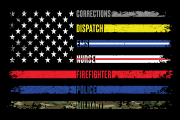The Refuge offers holistic and evidence-based residential treatment in a serene, secluded healing environment for posttraumatic stress disorder recovery, moving beyond the symptoms to resolve the underlying issues.
Learn More About Our PTSD Treatment Center
More About The Refuge PTSD Treatment Center
Our treatment center is designed to provide trauma and posttraumatic stress disorder rehab in a wide variety of ways based upon the manner in which a person copes with unresolved PTSD and trauma. Unresolved PTSD and trauma can manifest in a variety of self-destructive ways, including self-harm, overeating or restricting food intake to reduce negative feelings, gambling, becoming a workaholic, and internet addiction.
Types of Trauma We Treat
- Abandonment
- Illness
- Medical
- Neglect
- Child Sexual Abuse/Assault
- Molestation
- Rape
- Sexual Harassment
- Loss and Violent Traumas
- Assault
- Death of a family member or friend
- Injury or Illness of a loved one
- Sexual Trauma
- Adult Sexual Abuse/Assault
- Adultery
- Military Experiences
- Robbery
- Suicide
- Witness to Violence
- Accidents
- Natural Disaster
- Vehicular Accident
- Work Accident
Understanding the Need for Help Coping with Trauma
The Refuge: Coping With Trauma
Trauma and PTSD may be acquired in a myriad of different ways and is not confined to sudden, dramatic events such as natural disasters. The emotional wounds may develop over time in long-lasting events such as recurring abandonment (emotional and physical) and more subtle forms of abuse. Our trauma and PTSD treatment center is designed to handle the issues our clients come to us with. Our treatment center’s staff helps them develop more effective ways of coping that last a lifetime and evolve long after leaving our treatment center.
When events occur that make us feel extremely frightened, threatened, or distressed we may end up developing an emotional or psychological wound. Some people may be able to move beyond this experience with the help of friends, family, and an extensive support network. However, many people do not have these resources and end up feeling very alone. This can lead to an increasing inability to cope, function in important various areas of daily living, or maintain regular routines. Often trauma victims feel that no one can understand what they went through and the suffering they experience which can cause them to withdraw from loved ones. Conversely, loved ones may realize that something is wrong with their loved one and want to help but feel confused, rejected, and unsure of what they can do to help.
There is no “normal” way to react to trauma – each person is different. Some people try to repress or forget the event by distracting themselves with other activities. Others may focus on the traumatic event constantly. There may be a drive to remain continuously active to prevent unwanted thoughts from surfacing or an individual may become overwhelmed, paralyzed by intrusive thoughts they can’t get out of their mind. Often individuals who have experienced trauma lose the ability to feel pleasure, leading to a lack of motivation to do much of anything. Some people may feel a sense of emotional numbness while others may experience emotional oversensitivity.
Often those who have survived one or more traumatic events don’t fully realize the impact it is having on their lives. At our PTSD treatment center, we want you to know that you don’t have to deal with trauma alone. We’re here to help you through this troubled time. We see each resident as an individual with unique needs and recognize your desire to belong to a community that understands you. When you become a part of our rehab center’s family, you will begin to replace the negative experiences you have lived through with the positive experiences of re-establishing positive relationships and the joy that life holds. Don’t try to go at it alone. We’re here to help.
How Our Center Treats Trauma/PTSD
The Refuge Trauma and PTSD Rehab
Our treatment center’s approach explores and examines the traumatic event and subsequent development of post-traumatic stress disorder as well as the underlying emotional pain that fuels destructive behavior. We begin the process of healing these emotions through a combination of clinical therapy, 12-step recovery, holistic approaches and evidence-based modalities. Trauma and PTSD treatment are visceral, sensory and cellular. Therapists at our treatment center build trust, create a safe environment, involve the family, and do not pass judgment. Our rehab center’s therapists are specifically trained in handling clients who suffer from trauma and PTSD.
Read frequently asked questions about posttraumatic stress disorder.
T’s Story
Learn More About T’s Story
One of our residential treatment center’s alum, surgeon Dr. Tara Dixon, MD, has experienced the effects of PTSD and trauma firsthand. She shares her experience of suffering as well as her subsequent treatment and recovery frequently at industry conferences and seminars. An article on T’s experience may be found here.








